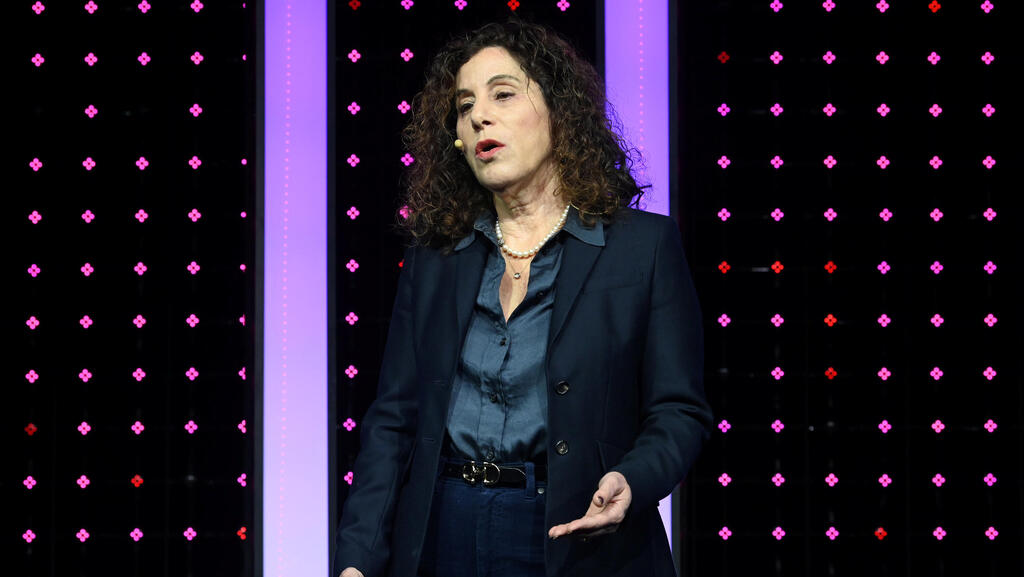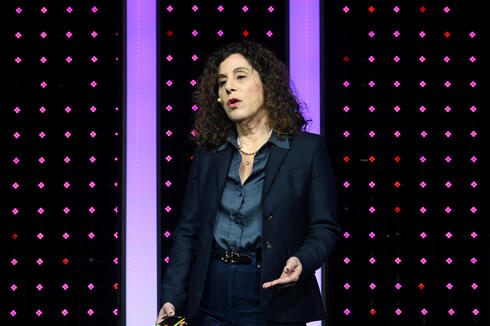
Tech TLV
"The ability to identify objects from space is our mission, and AI capabilities are revolutionary"
Inbal Kreiss, Head of Innovation at Israel Aerospace Industries’ Systems Missiles and Space Group, spoke at Calcalist and Bank Leumi’s Tech TLV conference about how AI can have a revolutionary impact on the use of big data collected from space.
"Years ago, I was told that intercepting ballistic missiles in space was something that wouldn't work, but we created technological leadership and proven global impact," said Inbal Kreiss, Head of Innovation at Israel Aerospace Industries’ Systems Missiles and Space Group, during Calcalist and Bank Leumi’s Tech TLV conference. "Our focus today is AI - integrating analytical engines into all defense and navigation systems.”
"In the realm of big data, a tremendous amount of information is collected, specifically in our case, from space. This is the new gold, and performance is improved using AI. Any system that integrates advanced analytical capabilities will see its performance upgraded. There is an abundance of imagery from space, a wealth of information. The ability to identify objects from space is our mission, and AI capabilities are revolutionary in their performance. We must continue to be innovators and leaders in satellites and even in reaching the moon."
Kreiss noted that big data, continuously gathered, can serve countless purposes beyond security, including detecting phenomena on Earth, identifying ocean pollution, and discovering minerals in agricultural regions. "The wise use of big data will improve our quality of life on Earth and enhance our end-to-end systems and applications across all domains," she explained.
According to Kreiss, "Machine vision is the main player, as capabilities advance daily, weekly, and monthly, even in open-source libraries and satellite systems. Every pixel becomes an application integrated into systems, driving a revolution.
Related articles:
"For instance, in the maritime domain, we can identify types of vessels, whether they’re for security or civilian purposes, in any weather, at any time, and make decisions for both military and civilian needs. For R&D systems, incorporating AI during design can reduce costs, improve performance, and revolutionize these fields."
How can innovation be sustained in an environment that provides solutions for the defense industry?
"Through a combination of open, global innovation and accelerator programs with academic institutions in Israel and worldwide. This is how ecosystems are built,” she said.
"One of our flagship programs is a hybrid accelerator that combines external and internal teams to demonstrate technology and advance new capabilities. The program is now in its 15th cycle, and 16 patents have already been registered. The fact that we create the best defense systems in the world is something the entire world recognizes. We also have programs with several countries that run startup accelerators in space and aerospace fields."
